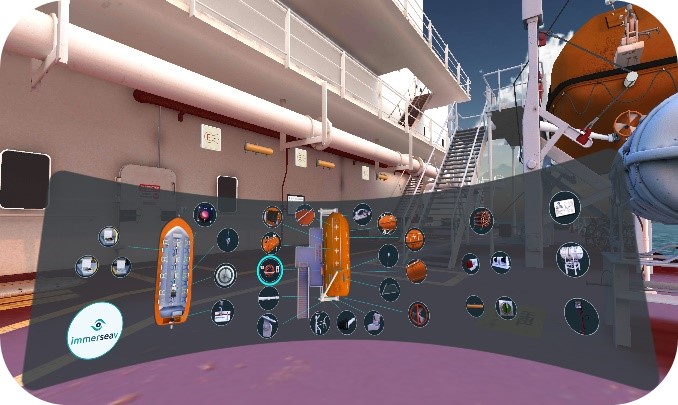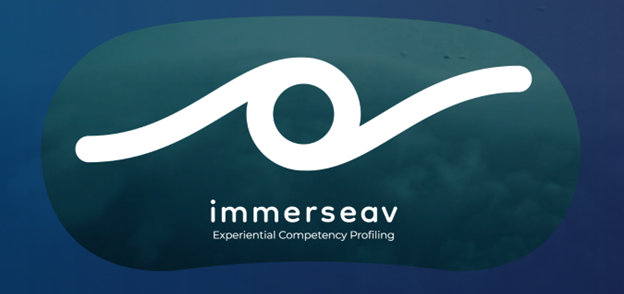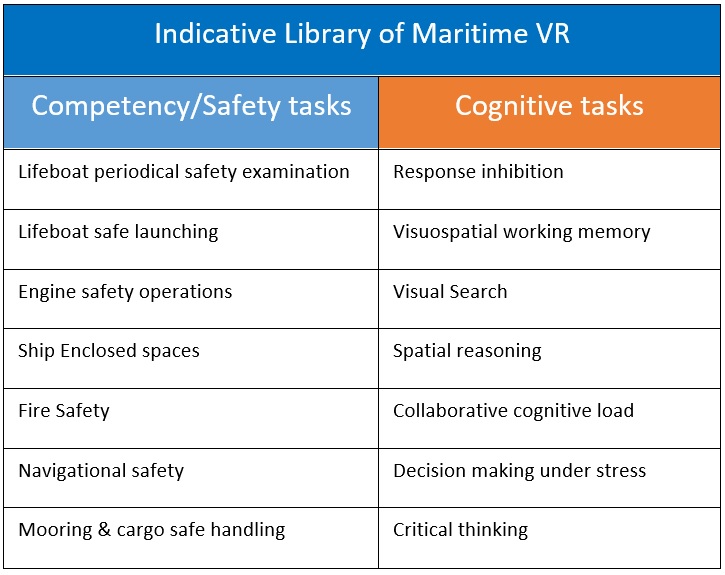
(www.MaritimeCyprus.com) Petros Achtypis, CEO Prevention at Sea says, ‘We are confident that we have built a solution aligned to TMSA, Dry-BMS requirements that fits to all needs and is in the correct direction of minimizing accidents in our industry.’
IMMERSEAV Virtual Environments, a Cypriot company established in 2018 and operating under the Prevention at Sea Group, has launched their innovative Virtual Reality Maritime solution in November 2022 after 4 years of research and development, in close collaboration with reputable shipping stakeholders. The IMMERSEAV solution capitalizes on the ‘prevention’ approach of ‘Prevention at Sea’ and blends under the same roof maritime expertise, Virtual Reality technology and scientific knowledge from Psychology and Neuroscience. (www.immerseav.com)

Q: What is the problem that IMMERSEAV helps the maritime industry in solving it?
Petros Achtypis, CEO Prevention at Sea commented that, ‘From EMSA reports we know that commercial ships were involved in over 19,000 accidents in the last five years. Most of maritime accidents refer to collisions, fires, explosions, ships being lost, injuries and other safety-related incidents that are caused by human error and unsafe behavior. The International Safety Management (ISM) code and STCW provided hope that continuous training and certifications would make seafarers act and behave safely during their service on board. Yet, the persistence of the human failure and unsafe behaviour over the years, suggests that more needs to be done. The conclusions from scientific research on mental health are communicated to the maritime industry by the recently released INTERTANKO/OCIMF Behavioral Assessment guides, clearly stating that new assessment and training tools are needed to enable shipping companies staff their ships with skillful, well-trained beyond typical STCW courses, and psychologically resilient personnel.
Q: How science can help the maritime industry and seafarers to improve safety behavior?
Professor Marios Avraamides, an expert Cognitive Scientist at the University of Cyprus points out that, ”being a seafarer is one of the most difficult professions associated with acute stress, anxiety, and fatigue, which often lead to more chronic conditions such as depression. Such mental health conditions, either acute or chronic, have detrimental effects on the daily cognitive functioning of seafarers. For example, we know that stress and anxiety affect negatively the mechanism of Selective Attention, which allows people to select for further processing information that is relevant to the task in hand and ignore the rest. In turn, Selective Attention prioritizes information for gaining access to Working Memory, a capacity-limited store that is used to control behaviour, such as preparing and executing motor responses, producing verbal responses etc). “
Cognitive mechanisms, such as Selective Attention and Working Memory are largely overlooked during the hiring process. For example, hiring personnel usually involves in-person or remote interviews via video calls, and typically relies on administering basic tests to evaluate skills and technical knowledge. Staff is also trained before embarkation or while on board by various means such as video-based e-courses. This model of evaluation and training, is used in the shipping industry over the last 20 years, and has been helpful for various aspects of the job, e.g., highlighting bad practices, showcasing errors from the past or communicating existing or forthcoming regulations and so on. However, we identified some notable disadvantages such as for example, it does not provide full immersion and interaction with the working environment, it does not evaluate or train personnel in actual & realistic conditions and there are clear limitations in assessing safety or cognitive behavior under stressful conditions.
Q: What problems have you identified in the professional cycle of seafarers?
Dr Kleanthis Neokleous, Group leader at CYENS Research Centre and head of IMMERSEAV product development comments that, “seafarers spend long periods of time on board, away from their families and friends; they must socialize with colleagues from diverse cultural backgrounds, and cope with challenging conditions in rough seas, strong winds, high or low temperatures. At the same time, seafarers are expected to remain up to date with regulations and take the correct and appropriate decisions in a very short timeframe, building a potential volcanic mixture of risks that could easily escalate. The expectations and demands are thus very high, making work in the maritime industry from any position a very challenging task. In most cases, the task involves decision making under stressful situations or limited time, critical thinking, correct judgement, and implementation of the regulations etc. “
of IMMERSEAV product development comments that, “seafarers spend long periods of time on board, away from their families and friends; they must socialize with colleagues from diverse cultural backgrounds, and cope with challenging conditions in rough seas, strong winds, high or low temperatures. At the same time, seafarers are expected to remain up to date with regulations and take the correct and appropriate decisions in a very short timeframe, building a potential volcanic mixture of risks that could easily escalate. The expectations and demands are thus very high, making work in the maritime industry from any position a very challenging task. In most cases, the task involves decision making under stressful situations or limited time, critical thinking, correct judgement, and implementation of the regulations etc. “
Q: How IMMERSEAV works?

Petros Achtypis, CEO Prevention at Sea commented that,
‘IMMERSEAV solution is not just another VR training system; it is built using a wireless VR Headset operating both online and offline and consists of a library of various Maritime VR scenarios. Seafarers are immersed individually or as a team on a virtual ship and they are invited to carry out tasks for training purposes or tasks that assess their competency skills and cognitive performance. Furthermore, these tasks can be carried out either under normal or stressful conditions, allowing IMMERSEAV to determine resilience to external stressors. Results are securely kept under the candidate’s account on the cloud, in line with the GDPR rules.’
Q: How a shipping company, manning agents and seafarers can benefit from IMMERSEAV?
Dr Kleanthis Neokleous, Group leader at CYENS Research Centre and head of IMMERSEAV product development comments that,
‘IMMERSEAV identifies key metrics of seafarers' cognitive behaviour and competency skills that lead to their overall safety behaviour and helps shipping companies benchmark new seafarers joining the company against the existing pool of seafarers, identify training needs and set up a personalized training scheme per seafarer executed on a Maritime Virtual Environment. IMMERSEAV also offers the ability for a Trainer and a team of seafarers to join the VR task remotely for different places at the same time.’

Q: What the industry should expect from IMMERSEAV in the future?
Petros Achtypis, CEO Prevention at Sea commented:
The Library of Maritime VR tasks is constantly updated. The aim of our solution is not to ban seafarers from entering the maritime industry or discourage crew managers to hire candidates of low indicators. On the contrary, these experiential VR tasks provide a way to test and train personnel in interactive and highly realistic conditions that mimic those that are or may be encountered on board. Notably, quantitative data about performance are recorded during usage, allowing the seafarer or their managers to assess their performance and progress on certain critical items that have been identified from our long maritime experience but also regularly reported by International Maritime Bodies and Classification Societies.
Thus, a personalized training can be formed dedicated to the individual’s identified needs whilst the shipping company is aware of the level of individual’s skills, the overall skills level of their pool of seafarers divided in rank, age, nationality, gender etc and based on that, they are in a better position to know what to expect, create optimum crew synthesis, monitor improvement over years and enhance technical skills on certain ship’s operations, spaces and machinery.
We are confident that we have built a solution aligned to TMSA, Dry-BMS requirements that fits to all needs and is in the correct direction of minimizing accidents in our industry.’
For more information about IMMERSEAV, please visit www.immerseav.com or talk to Prevention at Sea team at sales@preventionasea.com.












